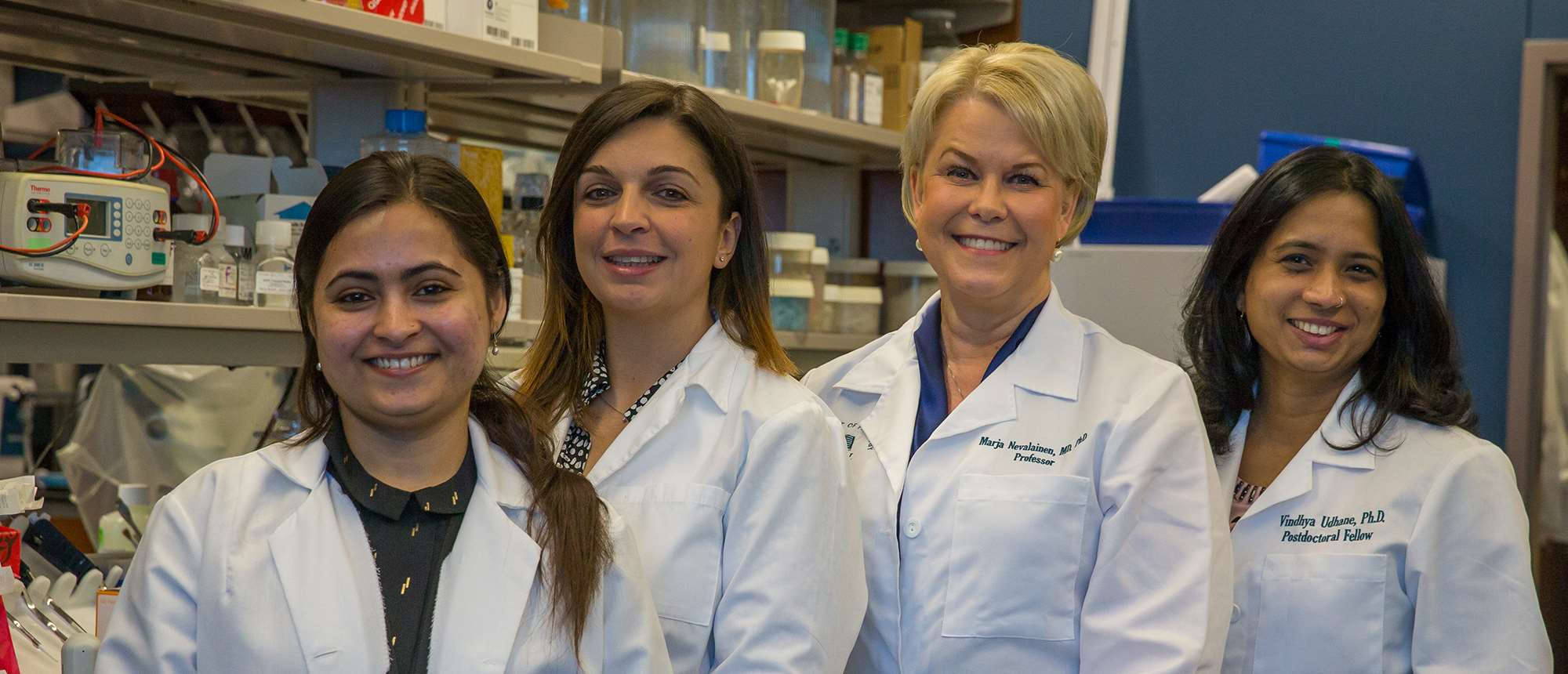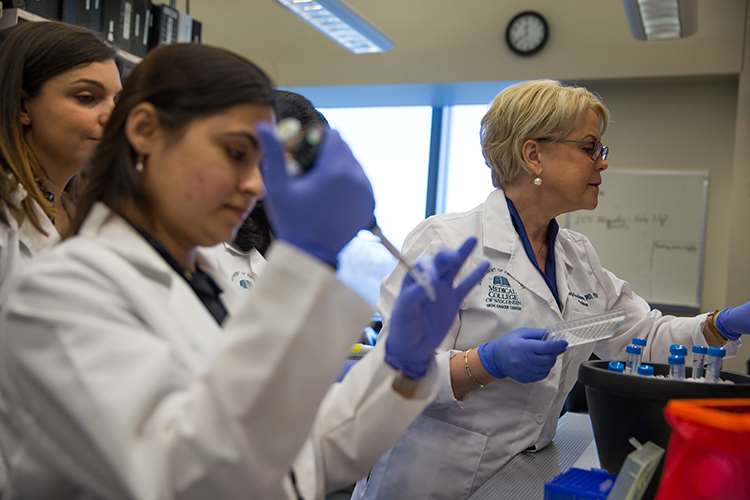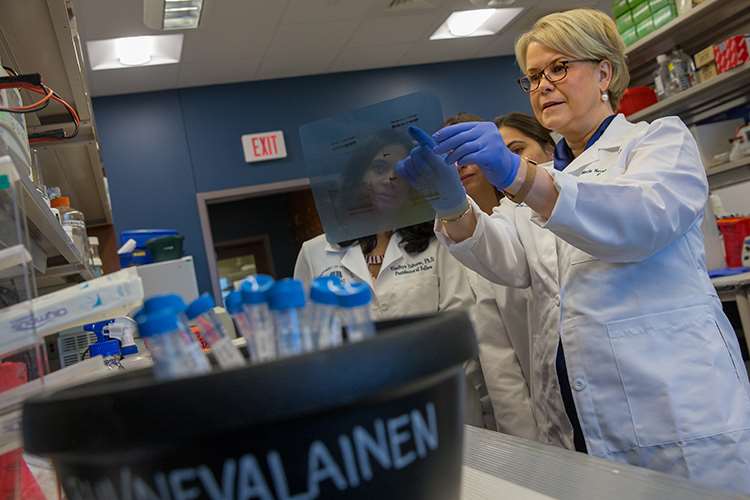A Lifetime of Challenging Conventional Thinking on Prostate Cancer Treatment

Few people know from an early age the direction they want their lives to take or the path to get there – let alone the ultimate benefit it will have on the world. But for Marja T. Nevalainen, MD, PhD, eminent scholar and professor of pathology, pharmacology and toxicology at the Medical College of Wisconsin, it was very clear to her, already in high school, that becoming a doctor and conducting biomedical research was her life calling.
At age 18, Dr. Nevalainen was the youngest first-year student at her medical school in Finland at that time. Already eager to start making an impact, she asked the chair of cell biology if she could begin to help in a research project.
"He said I should wait until my second year of medical school," Dr. Nevalainen recalls.
A year before earning her medical degree at the University of Turku, she published her first authored research paper on prostate cancer. After then completing the university's PhD program, Dr. Nevalainen began her research quest in this field.
From her early days in research in Finland, Dr. Nevalainen's focus, along with many professors at the University of Turku, has been on identifying how and why prostate cancer cells become aggressive and spread to other organs – often leading to early recurrence and death – and ultimately finding a way to reverse their course.

Her work spans from Finland to her labs at the Georgetown Lombardi Comprehensive Cancer Center in Washington, DC, and the Sidney Kimmel Cancer Center of the Thomas Jefferson University in Philadelphia, and now to MCW since she arrived in Milwaukee in 2015. Dr. Nevalainen serves as Assistant Dean of Research at MCW as well as the Associate Director of Education for the MCW Cancer Center and the Director of the newly established Prostate Cancer Center of Excellence.
Prostate cancer is the most common non-skin cancer in men in the Western world, which makes Dr. Nevalainen's work extremely important. Organ-confined prostate cancer is typically treated by surgery that removes the entire prostate gland. Surgery may be curative, in which case no additional treatments are required. However, surgery may also reveal that the cancer initially thought to be confined to the prostate has actually spread beyond the prostate capsule to the neighboring organs.
Prostate cancer that has already metastasized to distant organs at the time of diagnosis is treated by various forms of hormone therapy that work to reduce the level of male hormones in the patient. They frequently target androgen receptors, a protein in the prostate cells that enables male hormone function.

"Many researchers who are working on treatments for prostate cancer have focused on targeting androgen receptors for the past 20 years," explains Dr. Nevalainen. "My research group works on therapy development by targeting Stat5 signalizing, which is a different approach."
Stat5 is a cellular protein that researchers have discovered is critical for prostate cancer cell growth. Dr. Nevalainen has demonstrated that if active Stat5 levels are high, the cells will behave aggressively, regrow after current hormone therapy treatments and are likely to metastasize.
As such, Dr. Nevalainen's lab is now evaluating whether Stat5 inhibitors will provide a therapy for advanced prostate cancer. Using medicinal chemistry, her group has already identified a family of novel small molecule Stat5 inhibitors that show great promise for further optimization and clinical development.
In addition, work from Dr. Nevalainen's lab brought forth the novel concept that Stat5 is a marker to predict poor survival of patients treated with surgery to remove the prostate gland. This discovery holds potential for high translational impact because it could help identify patients who require aggressive treatment and may benefit from additional therapies to lower the risk that the cancer will return.
The third major line of research in Dr. Nevalainen's lab is focused on the finding that Stat5 inhibition may be used to sensitize prostate cancer to radiation. This is important for prostate cancer patients because it would allow the use of lower radiation doses and reduce side effects caused by radiation therapy.
Such expansion in research beyond androgen receptors is gaining traction in Dr. Nevalainen's field.
"I just returned from a conference where many were now talking about the significance of targeting pathways other than androgen receptor to prevent recurrent prostate cancer growth," Dr. Nevalainen says. "The idea is finally being acknowledged."
Ultimately, Dr. Nevalainen's path is focused on taking her work from the lab to the clinic.
"This field is very competitive. You need to be very driven and decide where you want to invest your time," she notes. "During my lifetime, I'm hoping to translate my work into real benefits for cancer patients."





